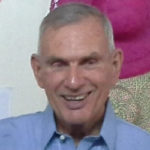CAVAN HOGUE. Australia did say no to the US on Vietnam in 1954.
Feb 16, 2017“Australia’s destiny was not so completely wrapped up with the United States as to support them in action which Australia regarded as wrong”. (R.G.Casey)
During the 1954 Geneva Conference on Vietnam the US was pressuring the French to stay the course in Vietnam against the threat of international communism of which the Viet Minh was a part. The US was at one stage willing to commit troops to help the French but only as part of a wider coalition so that the US would not appear to be just another colonial power. British Foreign Secretary Anthony Eden remained opposed to this idea and refused to participate in any such coalition. The US had in mind Australia, New Zealand, Thailand and the Philippines as other members but many in the US Administration felt they would need others who were not obviously American allies. As the debate raged, Dien Bien Phu fell and the Viet Minh began to move south.
Eventually, the Australian cabinet decided against joining any such coalition. Menzies was torn between our traditional support for Britain which was much stronger then than it is now and our desire to keep the US involved in the defence of Asia. Australia would not become involved then or later in an American led military coalition but favoured a political solution even if that involved partition. In his Cabinet submission, External Affairs Minister R.G.Casey said that notwithstanding Australia’s interest in keeping the US involved in the defence of Asia, “Australia’s destiny was not so completely wrapped up with the United States as to support them in action which Australia regarded as wrong”.
In his book, ‘Embers of War’ Fredrik Logevall, argues that Australia’s refusal to come on board tipped the balance in Washington where Eisenhower was having increasing doubts about the value of military intervention which, in any case, had never been saleable to Congress without a suitable coalition including the UK. The deteriorating situation on the ground was no doubt also a major factor.
Casey’s view is interesting in the light of later developments as the relative importance of our two great and powerful friends changed and we did follow the US into a series of disasters. Perhaps the Casey formula should be resurrected? Will we go all the way with Donald J or will his instability force us into a more independent approach?
Cavan Hogue was a former senior Australian diplomat and Ambassador to USSR and Russia.




